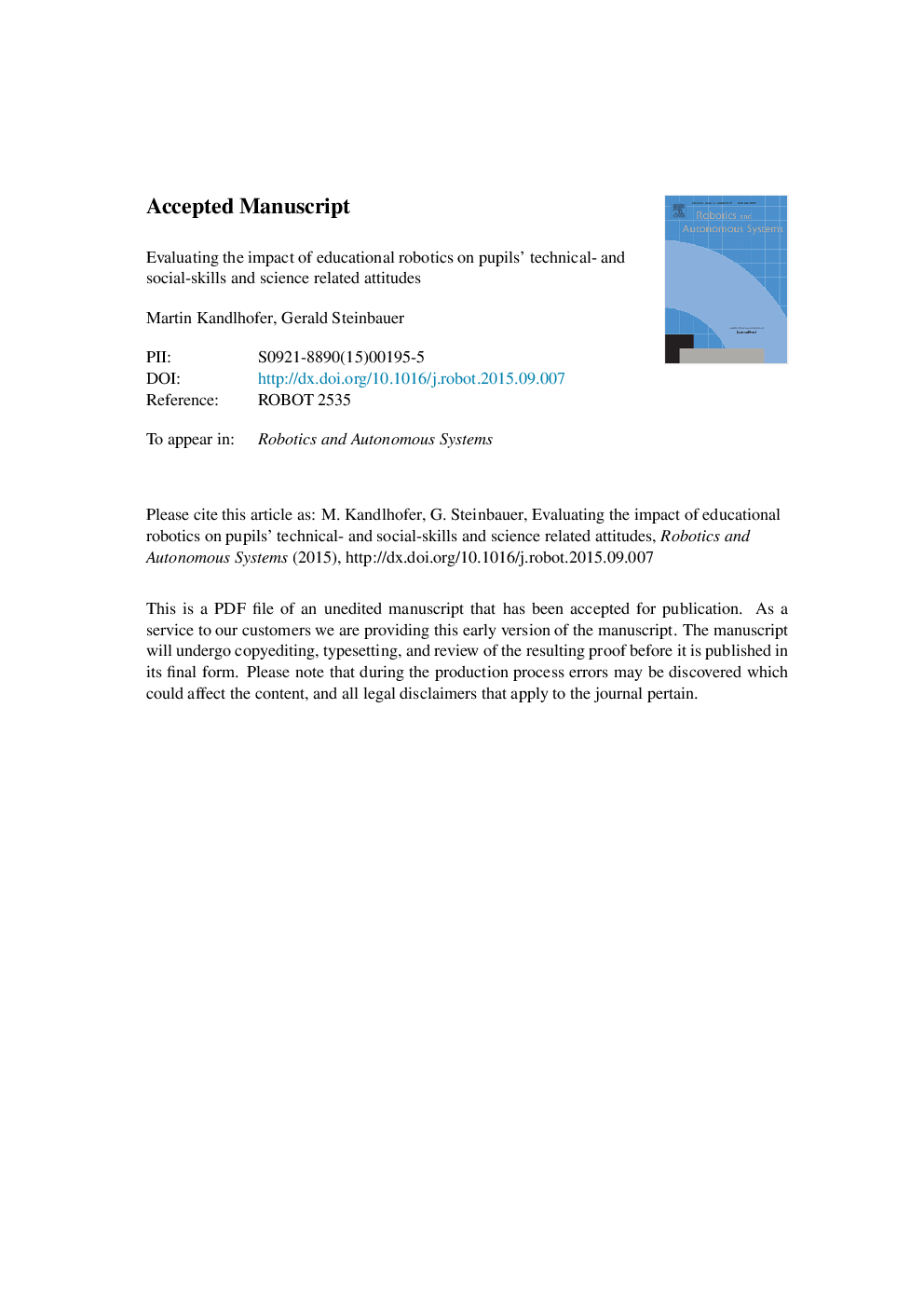| Article ID | Journal | Published Year | Pages | File Type |
|---|---|---|---|---|
| 10326756 | Robotics and Autonomous Systems | 2016 | 19 Pages |
Abstract
This paper presents the design and results of an empirical study investigating the impact of educational robotics on technical skills, social skills as well as on science related attitudes and interests of pupils. The study relied on a quasi-experimental two-group design with two measurement points (pre- and post-test) and applied a multiple-choice questionnaire as assessment instrument. The study covered a period of approximately eight months and comprised pupils from different schools in Austria and Sweden. Using well-grounded statistical methods, the gathered data were analyzed around 14 different topics ('sub-scales') arranged in three main categories. Results indicate significant intervention effects for three sub-scales (mathematics and scientific investigation, teamwork, social skills) as well as for two main categories (technical skills and soft skills/social aspects). Correlation analysis revealed a number of highly significant strong relations between various sub-scales.
Related Topics
Physical Sciences and Engineering
Computer Science
Artificial Intelligence
Authors
Martin Kandlhofer, Gerald Steinbauer,
